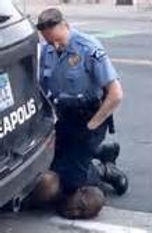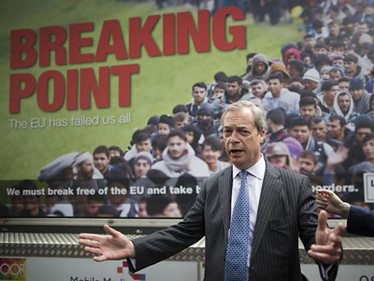Every time it happens we are awash with liberal promises to deal with the “bad apples,” to root out racism, to reform the police.
But it happens again and again and again. And to continue to believe you can have anti-racist police in a capitalist state looks like a triumph of hope over experience.
The truth is you can’t. Racism is part of the system, and the role of the police is to defend the system against revolt from below.
Let’s take racism in general, then look at the police.
Class and Race

All class societies, throughout the whole of history, have been racist. The amount of racism varies. It can take an extreme form, like in the American South before the 1960s, or in apartheid South Africa before the 1990s. Or it can take a milder form. But it never completely goes away.
When the oppressed organise and fight back, they can make real gains. The Civil Rights Movement did this in the States. The Black Lives Matter movement is doing it again today. But as long as the system lasts, the racism will be there.
Here’s four reasons why it’s rooted in the system:
- Ruling classes fight wars for plunder and profit, and when they do this, they try and mobilise people by demonising the enemy. That’s a kind of racism: the racism of empire.
- Ruling classes also fight wars to enslave people, and when they do this, they try and justify it by making out that the people they enslave are somehow ‘sub-human’. That’s another kind of racism: the racism of slavery.
- Class society is exploitative and competitive. Our rulers get rich through the exploitation of working people, and they have us competing for jobs, homes, and basic goods and services. We could unite against them to change this. So the system fosters divisions, including racial divisions.
- Racism means BAME people are disproportionately at the bottom of the heap – more likely to be unemployed, poor, low-paid, and so on. That means they are often in the forefront of fighting back against injustice. And that makes them targets for the police.

The people should always aim to unite – all the exploited and oppressed together against the rich, the system, and the cops. To deal with that threat, our rulers encourage racism, division, and scapegoat politics. Brexit is just the latest example: a corrupt ruling class peddling nationalism and racism to divide working people.
Police Racism
So why are the police institutionally racist? Here’s three reasons for that:
- Because of the repressive role they play, recruits are drawn disproportionately from the more reactionary sections of the working class.
- The main role of the police is to protect the rich, the system, and social injustice. Their job is to prop up the existing order, not put it right. That brings them into conflict with sections of the working class, especially racially oppressed minorities.
- Because of their repressive, racially-charged role, the police develop a ‘canteen culture’ that fosters racism – and violence against minorities.
The police therefore become a concentrated expression of the racism and violence of the capitalist state.
There is only one way to end this: to abolish the police, the capitalist state, and the whole rotten system with all its injustices.
Abolish the police? Won’t there be mayhem, mass looting, a crime wave, people say.
Well, not according to the history books. Formal policing is relatively recent. The British police were created in the 19thcentury in response to the emergence of the industrial working class, concentrated in big cities, and the perceived threat to the interests of the rich. Before then, policing had been informal, local, ad-hoc.
In moments of revolution, the police disappear. This has happened again and again when working people have risen up and taken control of their own communities. It happened in Paris in 1871, St Petersburg in 1917, Barcelona in 1936, Budapest in 1956, and Derry in 1969.
Capitalist police are an external, paramilitary, centrally directed force imposed upon society from above. They have to be – because the ruling class needs them to crush resistance from below, not side with it against the system.
And guess what? Revolutionary militias and patrols, accountable to democratic assemblies, when it has been possible to create them, have turned out to be far more effective at preventing crime and defending justice than capitalist police have ever been.
Abolish the police? Of course, as an inevitable part of the wider struggle to overturn the system, dispossess the 1%, and create a new society based on equality, democracy, racial justice, peace, and sustainability.
Art Book Review Books Campism Capitalism China Climate Emergency Conservative Government Conservative Party COVID-19 Creeping Fascism Economics EcoSocialism Elections Europe Far-Right Fascism Film Film Review Fourth International France Gaza History Imperialism Iran Israel Italy Keir Starmer Labour Party Long Read Marxism Marxist Theory Migrants Palestine pandemic Police Protest Russia Solidarity Statement Trade Unionism Trans*Mission Ukraine United States of America War

